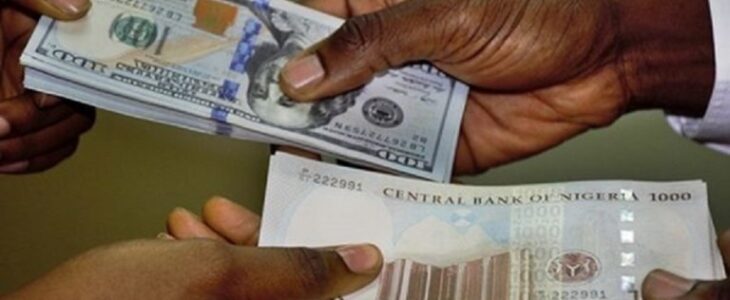
The Nigerian naira on Tuesday underwent a substantial decline, plummeting to an unprecedented low of N900/$1 on the parallel market. This drop occurred due to an overwhelming demand for foreign currency that exceeded the available supply
.Forex traders, in conversations with Nairametrics, reported exchange rates as high as N900/$1 for “inflows” and N895/$1 for cash trades. “Inflows” represent forex sales via interbank transfers and are considered more expensive than cash transfers. Even in the peer-to-peer market, where cryptocurrency traders exchange forex, the exchange rate soared above N900/$1.

In contrast, the official Investor and Exporter Window closed at N774.78/$1, while the NAFEX rate was N776. However, the official market is also facing supply constraints, with a daily turnover averaging $80 million since July.
The depreciation of the naira against the dollar has been a cause for concern, falling by 16% since the reunification of the exchange rate windows. This significant decline compares to a 2.5% depreciation observed between January 1 and June 14 (prior to the unification). In 2022, the naira had weakened by 22.9%.

The parallel market has been witnessing pressure on the naira for several weeks due to inadequate forex supply from official sources. At the beginning of the second half of the year, the exchange rate in the parallel market stood around N772/$1. However, a surge in demand from importers, foreign travellers, and speculators has triggered exchange rate volatility.
Forex traders attribute the depreciation to a scarcity of supply, as there are more buyers than sellers in the market. They do not foresee an improvement in the situation anytime soon. Various segments of the economy, including importers, foreign travellers, and speculators, are contributing to the increased demand.
Forex analysts estimate a substantial backlog of unmet forex demand in the official market, estimated to be around $8-10 billion. Some of this unmet demand spills over to the parallel market as buyers struggle to find sufficient supply in the official market to meet their needs. As demand continues to rise unchecked, concerns persist that the depreciation trend is unlikely to improve in the near future.
Credit: The Nigeria Lawyer
